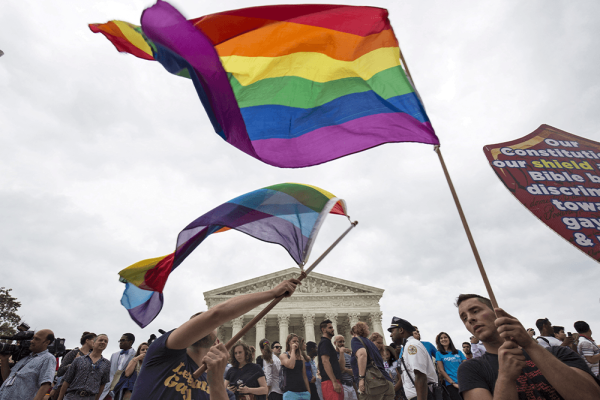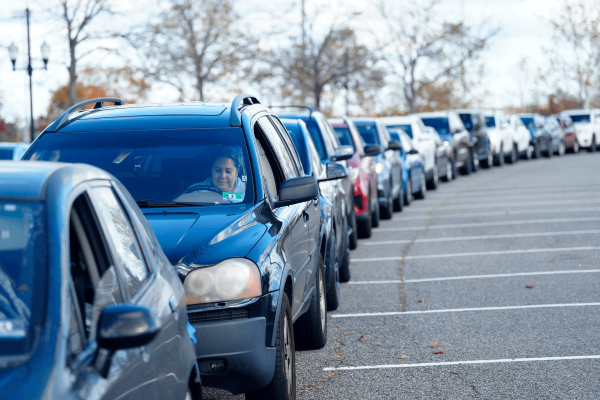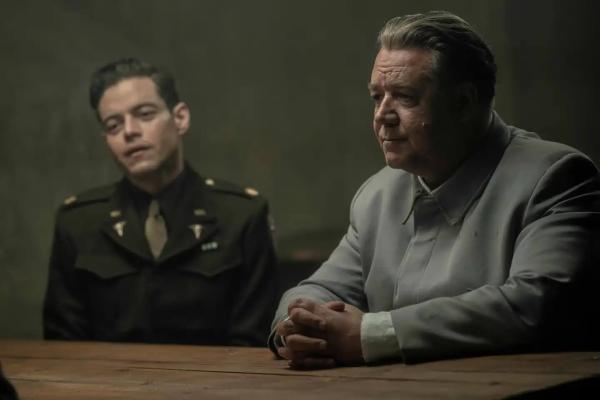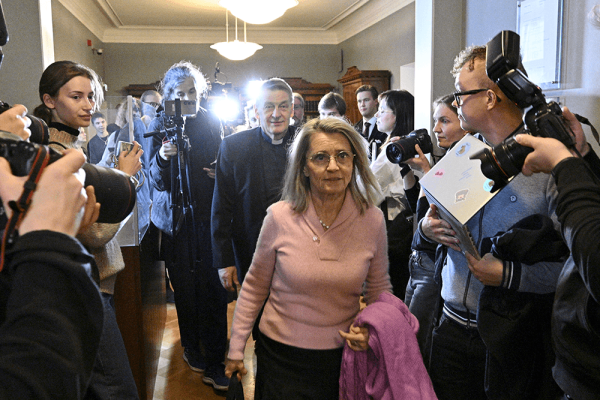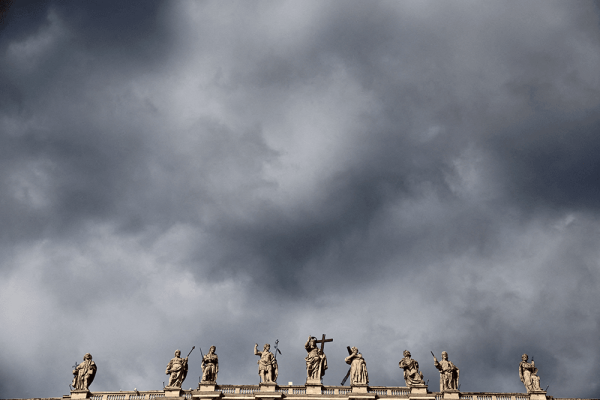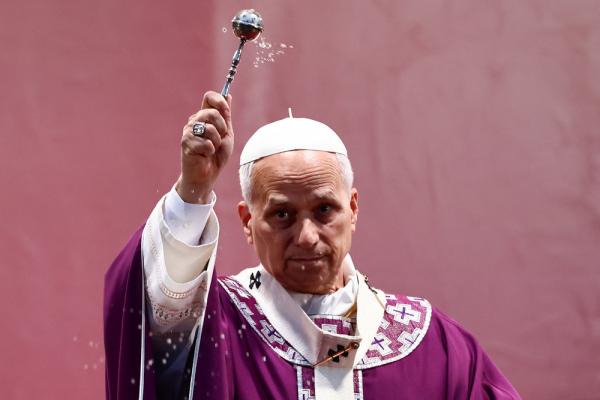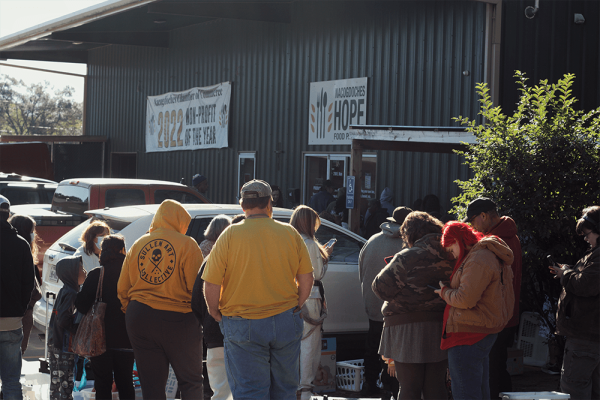The Supreme Court rejected on Monday a bid by a former Kentucky county official to overturn its landmark 2015 ruling legalizing same-sex marriage nationwide, as the justices steered clear of the contentious case some 3.5 years after its conservative majority reversed abortion rights.
The court, which has a 6-3 conservative majority, turned away an appeal by Kim Davis, a former Kentucky county clerk who was sued by a gay couple after refusing to issue any marriage licenses after the 2015 decision recognized a constitutional right to same-sex marriage. Davis has said same-sex marriage conflicts with her religious beliefs as an Apostolic Christian.
With a fragile ceasefire between Israel and Hamas in place, it is tempting for many in the West to ignore the broader issues that Palestinians still face: Namely, increased settler violence and the state of Israel annexing more Palestinian land. I went to Palestine in August, while the war that was not a war still raged, and I saw firsthand the dire reality of Palestinians in the West Bank.
Whenever government food assistance programs enter the news cycle, the conversation tends to focus on whether recipients are deserving. For example, Republican members of Congress have accused SNAP recipients of not having jobs and wrongly claimed the program benefits undocumented immigrants. Louisiana Rep. Clay Higgins said on X that any SNAP recipients who didn’t “have at least 1 month of groceries stocked” in advance should be ineligible to continue receiving benefits and “stop smoking crack.”
It’s ugly sentiments like this that underlie the Trump administration’s cruel use of hunger as leverage to pressure Democratic senators into signing the Republicans’ continuing resolution, all while Trump himself drags its feet on a court order to make full SNAP payments despite the shutdown. Meanwhile, food pantries are being stretched beyond capacity, with families, children and the elderly going hungry just weeks before Thanksgiving. Given this, the question of whether or not these people are truly deserving is not just political negligence. It is deeply immoral.
Hermann Göring, Adolf Hitler’s second-in-command, was known as “the best dinner party guest you’ll ever have.” That’s according to James Vanderbilt, the co-writer, co-producer, and director of Nuremberg, the new film dramatizing the origin story of the Nuremberg trials, when, for the first time in history, international law held individuals—not just nations—accountable for crimes against humanity. Göring, played by a precise, brilliant Russell Crowe, was the high command of the Nazi Luftwaffe. He was also, as Vanderbilt told me during a Zoom interview, “funny, charming, and magnetic—none of the things you would associate with a Nazi.”
The film, which premiered at the Toronto International Film Festival in September and arrives in theaters Nov. 7, opens with Göring surrendering himself to the Allied troops in 1945. He directs his driver to wave a white flag...ish (the lace material that he rips from the bottom of his wife’s slip). And just like that, we learn that one of the most powerful Nazi leaders is resourceful, is brazen, is husband.
This past weekend, funds for the Supplemental Nutrition Assistance Program ran out due to the longest government shutdown in U.S. history. But after two federal judges ruled that the Trump administration could not legally prevent the nation’s largest anti-hunger program from receiving funds, the administration said it would designate $4.65 billion from an Agriculture Department contingency fund to offer partial relief to the 42 million people who rely on SNAP benefits.
On Thursday, Oct. 30, Finnish politician Päivi Räsänen had her day in court. Again.
Räsänen, a former interior minister, and Lutheran Bishop Juhana Pohjola, are being adjudicated for alleged hate speech after Räsänen tweeted a Bible verse questioning her church’s participation in a Pride event and co-authored a booklet with Pohjola outlining her beliefs on marriage and sexuality. Prosecutors claimed both constituted hate speech. Though Räsänen was twice acquitted in lower courts in Helsinki, the case will now be decided by the Finnish Supreme Court.
Beyond Finland, the case is just one moving part in an evolving, broadening battle over free speech that is escalating across the Atlantic.
Jesus may have heard words of wisdom from his mother Mary, but she did not help him save the world from damnation, the Vatican said on Tuesday.
In a new decree approved by Pope Leo, the Vatican’s top doctrinal office instructed the world’s 1.4 billion Catholics not to refer to Mary as the “co-redeemer” of the world.
Jesus alone saved the world, said the new instruction, settling an internal debate that had befuddled senior Church figures for decades, and even sparked rare open disagreement among recent popes.
Pope Leo called on Tuesday for "deep reflection" about the way migrants are being treated in the United States under President Donald Trump's administration and said the spiritual needs of those in detention needed to be respected.
Speaking to reporters in Castel Gandolfo, his residence outside Rome, the pope was asked about immigrants detained at a federal facility in Broadview, near Chicago, who have been refused the opportunity to receive holy Communion, an important religious obligation.
On Oct. 28, U.S. Border Patrol Chief Gregory Bovino sat before U.S. District Judge Sara Ellis, who had ordered him to appear in court after attorneys accused him of throwing tear gas into a crowd in the Little Village neighborhood. Bovino was selected by the Trump administration to lead its immigration raids in Chicago—dubbed “Operation Midway Blitz.”
For Deidra Harrison in Nacogdoches, Texas, the lead up to All Saints Day wasn’t what it usually is. In addition to preparing for the usual church festivals and trick-or-treaters that mark the season associated with abundant harvests, Harrison and her team of volunteers were scrambling to meet a growing food scarcity created by the U.S. Government shutdown as it entered its fourth week.
Harrison is the board president for HOPE (Helping Other People Eat) Food Pantry, one of the many food pantries and food banks seeing long lines and high turnout as 42 million Americans brace for delays to Supplemental Nutrition Assistance Program (SNAP) payouts.
